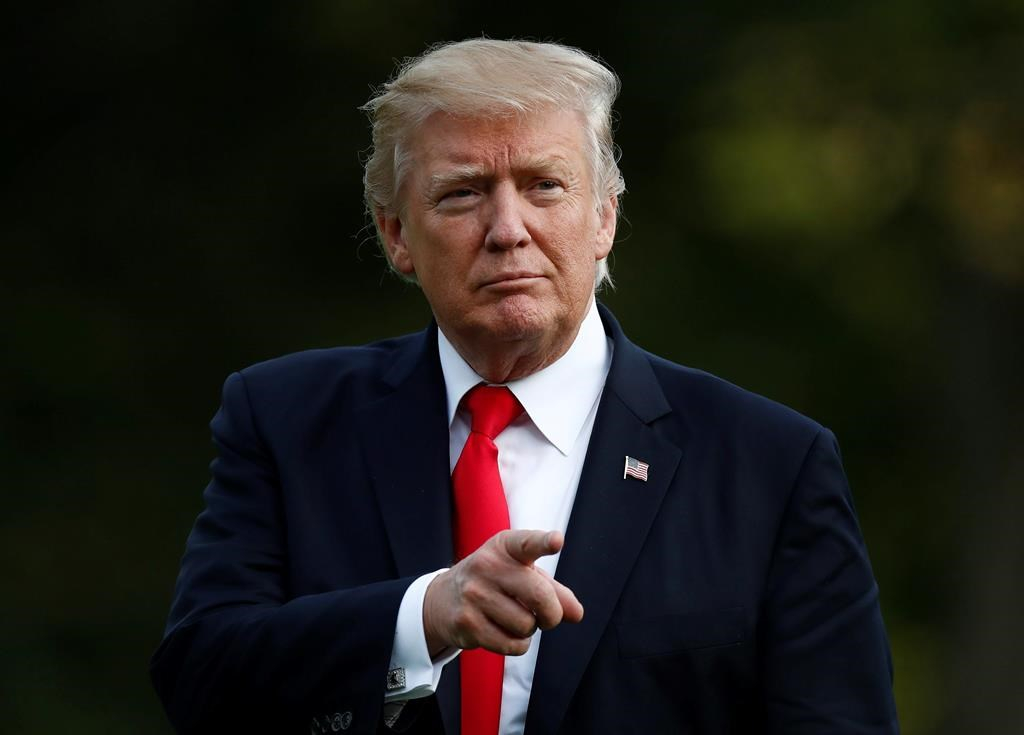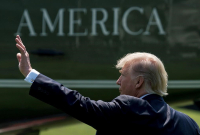Support strong Canadian climate journalism for 2025
If Donald Trump attempts the proverbial gun-to-the-temple negotiating strategy on NAFTA, how should America's neighbours respond: Keep sitting there, or walk away from the bargaining table?
It's a question the other North American countries are grappling with.
That's because the U.S. president is increasingly explicit in suggesting he might pull the trigger on the formal NAFTA withdrawal process to frighten the other countries into making concessions during negotiations.
Trump made some of his clearest remarks yet Wednesday on the idea.
He suggested he might start the withdrawal process not necessarily to end NAFTA, but to strengthen his negotiating leverage.
"We're working right now on NAFTA, the horrible, terrible NAFTA," Trump told an audience in Missouri.
"We've got to change this deal. And hopefully we can renegotiate it, but if we can't, we'll terminate it and we'll start all over again with a real deal."
That remark about terminating and starting over was an apparent reference to Article 2205. That's the clause in NAFTA where one country can serve notice of its intent to withdraw, after a minimum six-month waiting period.
Such a move wouldn't necessarily mean the end of NAFTA. At the end of the six-month period, the president could still choose to remain in the agreement. Furthermore, even if he did choose to withdraw, what would likely follow are complex legal battles where lawmakers and industry would argue that the agreement remains largely intact, unless the U.S. Congress passes a law rescinding it.
Still, a withdrawal notice would present the other countries with a mammoth dilemma — about whether to stay or go.
Mexico has indicated it would leave. Canada hasn't been that explicit.
The southernmost partner drew its line in the sand Wednesday. A high-level Mexican cabinet delegation left for meetings in Washington, and made its position clear when asked whether it would keep negotiating under the threat of withdrawal under Article 2205.
"No," said Mexican Foreign Minister Luis Videgaray, as quoted in several Spanish-language media reports.
"We do not believe it would be the correct path or a viable path, describing the agreement as terminated right as we're in the process of renegotiation."
He made those remarks after a meeting with U.S. Secretary of State Rex Tillerson.
The Canadians aren't going that far.
The Canadian government says it's focused on the negotiations and looks forward to the next round, which starts Friday in Mexico City.
Its response Wednesday, in a statement from Foreign Affairs Minister Chrystia Freeland's spokesman Adam Austen was: "As we stated at the conclusion of the first round of talks, we are committed to upgrading NAFTA and establishing 21st century standards supporting middle class jobs to the benefit of Canada, the United States, and Mexico."





Comments